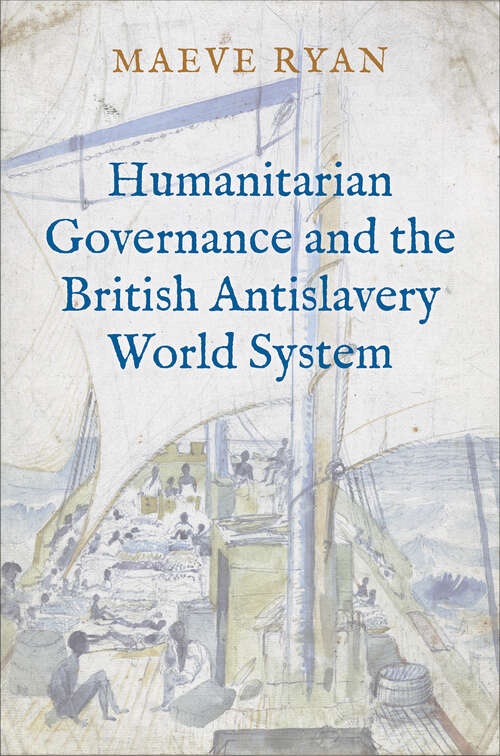Humanitarian Governance and the British Antislavery World System
By:
Sign Up Now!
Already a Member? Log In
You must be logged into Bookshare to access this title.
Learn about membership options,
or view our freely available titles.
- Synopsis
- How the suppression of the slave trade and the &“disposal&” of liberated Africans shaped the emergence of modern humanitarianism Between 1808 and 1867, the British navy&’s Atlantic squadrons seized nearly two thousand slave ships, &“re‑capturing&” almost two hundred thousand enslaved people and resettling them as liberated Africans across sites from Sierra Leone and Cape Colony to the West Indies, Brazil, Cuba, and beyond. In this wide-ranging study, Maeve Ryan explores the set of imperial experiments that took shape as British authorities sought to order and instrumentalise the liberated Africans, and examines the dual discourses of compassion and control that evolved around a people expected to repay the debt of their salvation. Ryan traces the ideas that shaped &“disposal&” policies towards liberated Africans, and the forms of resistance and accommodation that characterized their responses. This book demonstrates the impact of interventionist experiments on the lives of the liberated people, on the evolution of a British antislavery &“world system,&” and on the emergence of modern understandings of refuge, asylum, and humanitarian governance.
- Copyright:
- 2022
Book Details
- Book Quality:
- Publisher Quality
- Book Size:
- 328 Pages
- ISBN-13:
- 9780300265606
- Related ISBNs:
- 9780300251395
- Publisher:
- Yale University Press
- Date of Addition:
- 04/05/22
- Copyrighted By:
- Maeve Ryan.
- Adult content:
- No
- Language:
- English
- Has Image Descriptions:
- No
- Categories:
- History, Nonfiction, Social Studies
- Submitted By:
- Bookshare Staff
- Usage Restrictions:
- This is a copyrighted book.
